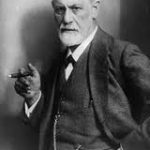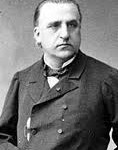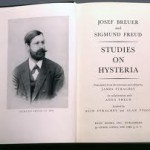When the Canton Asylum for Insane Indians opened at the end of 1902, scientists and researchers were already striving to find ways to treat insanity other than by confinement in an asylum. Sigmund Freud, born in Moravia in 1856, was one of many scientifically-minded academics interested in mental health who did not necessarily want to become traditional, asylum-connected alienists (the nineteenth-century term for mental health specialists). He enrolled in the University of Vienna’s medical school in 1873, and received his medical degree in 1881. He decided to make a career in medicine with a specialty in neurology.
At the time, “hysteria” was a catch-all term for a host of physical symptoms that doctors felt likely originated in the mind. After studying in France with Jean-Martin Charcot, a neurologist researching the use of hypnotism, Freud became interested in the use of hypnotism to treat hysteria. Freud used the technique in his practice, but eventually felt that the procedure couldn’t ensure long-term success. He instead became intrigued with a treatment devised by a medical school colleague, Josef Breuer. Breuer had discovered that allowing hysterical patients to talk freely often abated their symptoms.
Freud came to believe that most neuroses originated from deeply traumatic events. Allowing patients to confront and discuss these traumas (in safe conditions) proved beneficial and relieved symptoms. Freud found that drugs and hypnosis weren’t necessary for the treatment to be effective; just allowing someone to get comfortable and talk was all that was needed. His “talking cure” proved popular with the public, who found much to like about its gentler approach–as opposed to a stay in an asylum. In 1906, Freud and seventeen other men formed the Psychoanalytic Society, which soon fell apart due to the divergent paths members took as they continued to study mental health.
______________________________________________________________________________________


